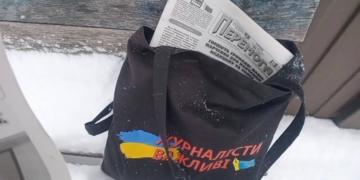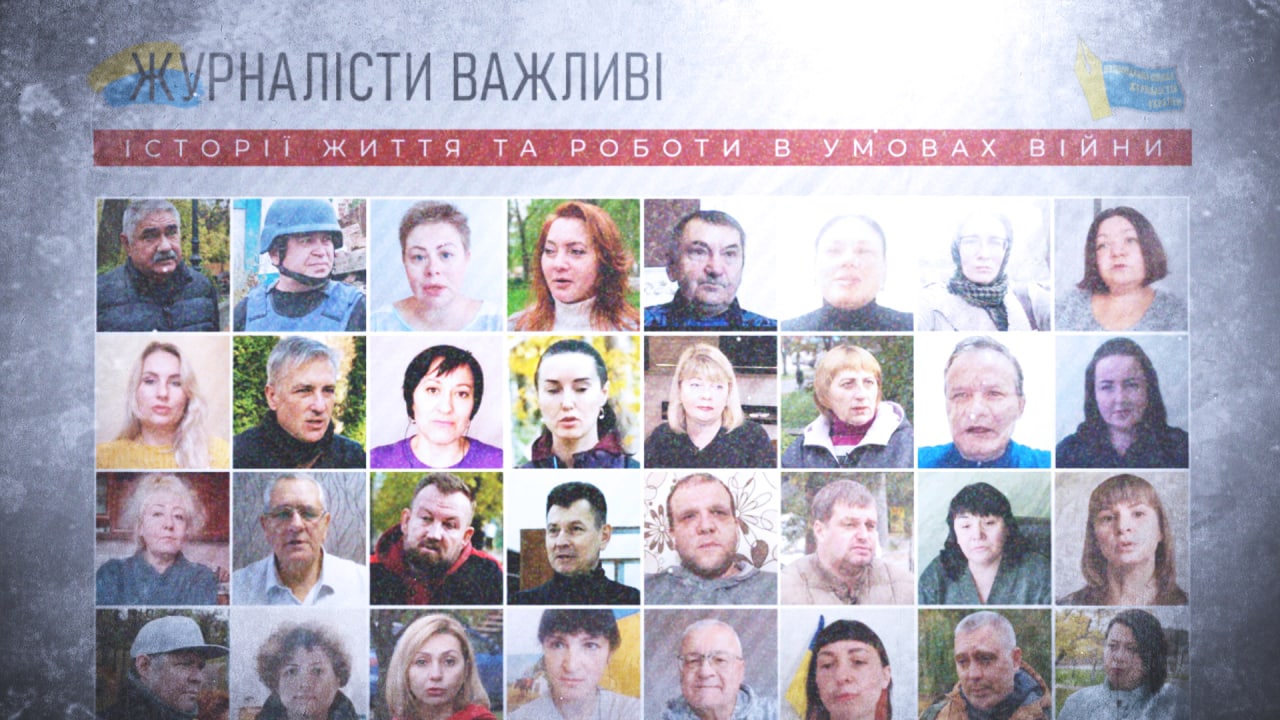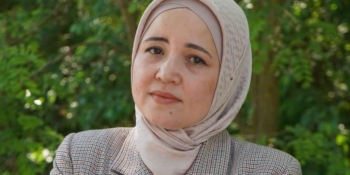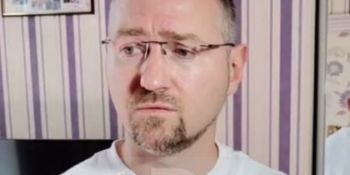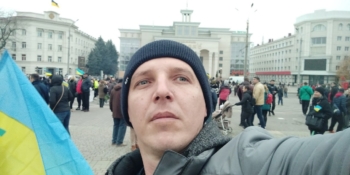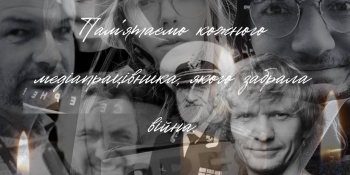For days and weeks under shelling, evacuation that led through tens of roadblocks and enemy-occupied territory, printing of war leaflets using printers, relocation of newsrooms, and volunteering – the war affected the fate of thousands of journalists in Ukraine. How it was possible to literally survive and continue professional activity?! Stories that answer these questions are prepared by a team of the National Union of Journalists of Ukraine with the support of the Swedish human rights organization Civil Rights Defenders.
As part of the initiative entitled Journalists are Important. Stories of Life and Work in Conditions of War, over 20 professional video stories and more than 70 Skype testimonies will be produced, and text stories about 100 media workers will be published on the NUJU website as the world should know the journalists’ stories about the war.
The family of journalists Ivan and Nataliya Leonovs got to know they were left with nothing only when they were in evacuation. Their house in Irpin was destroyed to the ground after shelling.
“We left in the morning of March 4. The very next day, many of our acquaintances caught the world-famous footage of people hiding under the bridge from shelling,” says Ivan Leonov, a journalist of the Ukraina Moloda [Young Ukraine] publication, who continued to work while hiding in the basement before the evacuation.
Two-time refugee, journalist Maryna Kuraptseva, was forced to escape from the Russian World for the second time. In 2014, she had to evacuate from the Donetsk Region, and in the spring of 2022 – from the completely destroyed Borodianka Town in the Kyiv Region. She is currently staying in Germany, and she does not yet know whether or not to return to Ukraine: she says she might not have the strength to go through something like that for a third time.
“On February 26, I stopped working when an acquaintance who lived on the outskirts of the town wrote that a Russian convoy had destroyed the first house killing people inside. I packed my work laptop, took the “emergency suitcase,” and we ran to the bomb shelter next to the house… On the cooker hood that was there in the bomb shelter, lined up could I see a whole “battery” of baby bottles. Those babies who were wrapped in diapers, pregnant women, dogs and cats, old people – everyone was in despair,” recalls Maryna Kuraptseva in a Skype interview for the NUJU.
Oksana Kovaliyova, a journalist from Hlukhiv, says: she saved herself and her children from starvation when she moved to live and work in the border town of Velyka Pysarivka in the Sumy Region, as the war left her without means of subsistence.
“One volunteer advised me to subscribe to NUJU telegram channel, and that’s where I found a job, they were looking for a journalist for the Vorskla newspaper. I knew that this is such a settlement [Vorskla] where the “hottest” military reports come from. It was in June, everyone was surprised that I came, while, for example, male photographers from various publications refused to go to the spot. I saw that, despite such proximity to the front, there were people staying in Velyka Pysarivka, the editorial office worked stably, and I felt that I was not afraid. That’s why I took the children and went there to work,” Oksana says.
Now Oksana Kovaliyova travels with the military to the tranches and makes reports. And from NUJU, the editorial office of Vorskla received protective equipment for the journalist, which was provided for the Union of Journalists in cooperation with the headquarters of UNESCO and the International Federation of Journalists.
Every journalist’s story is about the strength of spirit, indomitability, and professionalism of Ukrainian media workers, says Sergiy Tomilenko, the president of the NUJU.
“Being the largest journalist organization, we are in daily contact with our colleagues and editorial offices. In the first weeks and months of the war, we enlisted the help of our international partners to cover the primary needs faced by journalists such as protective equipment, different devices, material aid, and assistance in the relocation of editorial offices. Nowadays, we understand that the stories of journalists are important testimonies that the world, in particular, international journalist and human rights organizations, should know. About a hundred colleagues are ready to tell their sometimes unbelievable and shocking stories, so that both Ukrainians and people around the globe know the truth about the resilience of Ukrainian journalists who are going through extraordinary challenges of this unjust war,” says Sergiy Tomilenko.
Three professional television groups led by Dmytro Chystiakov, Alina Kravchenko, and Serhii Vendin are involved in media production, and online stories are prepared by experienced journalists Lesia Karlova, Olha Bohlevska, and Danylo Vereyitin. Sergiy Tomilenko, Lina Kushch, Snizhana Kutrakova, Anton Perepelytsia, Ilya Suzdaliev, Valentyna Pustiva, and Bohdana Stelmakh were involved in the creative and production processes (coordination and final adaptation and editing). The vast majority of the story production team are media professionals who have been forcibly displaced either since the full-scale Russian invasion this year or since the beginning of Russian aggression in 2014.
The Journalists are Important. Stories of Life and Work in Conditions of War project is implemented by the National Union of Journalists of Ukraine with the support of the Swedish human rights organization Civil Rights Defenders.





